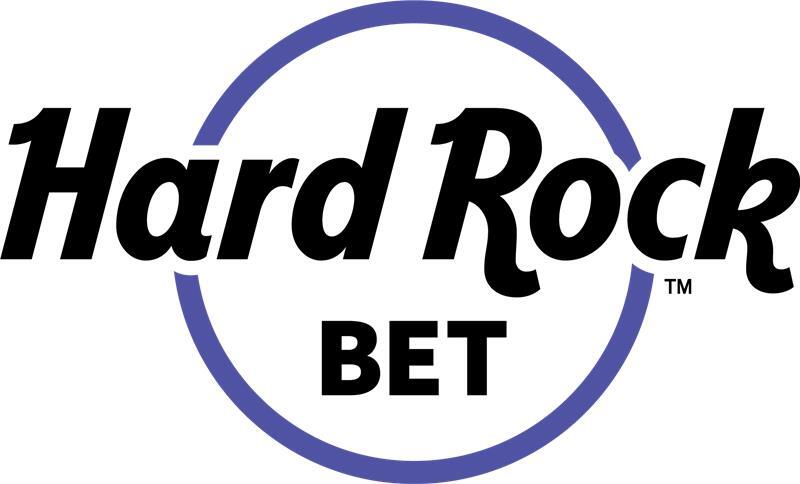NHL Betting Tips
Hockey is one of the toughest sports to bet on, which is precisely what makes it rewarding for disciplined bettors who rely on top-quality NHL betting tips. Reliable NHL…

When it comes to sports like hockey, randomness plays a large role, as there is low average scoring and the margins tend to be razor-thin.
Things are different here from sports like basketball and football, and to find long-term success, bettors must think like analysts. That means basing their decisions on statistics and data, understanding the impact of goaltending, and managing variance through smart bankroll control. In other words, successful hockey betting is not about luck, but about using data, content, and discipline to turn a volatile market into a reliable strategy.
Update: In the 2026 US market, NHL betting tips matter more than ever because hockey has become a mainstream but still highly volatile betting sport: low scoring, heavy reliance on goaltending and frequent one-goal games mean outcomes swing on tiny edges, so serious bettors increasingly lean on advanced metrics like expected goals (xG), shot-quality models, special-teams efficiency and schedule/altitude factors rather than just win–loss records or hot streaks. Within the regulated, state-by-state system – where licensed sportsbooks must offer tools such as deposit limits, time-outs and self-exclusion – the most useful NHL advice now focuses on embracing variance instead of fighting it: sizing bets conservatively, accepting losing streaks as part of the game, and looking for mispriced spots in moneylines, totals and player props where the market hasn’t fully accounted for things like backup goalies, travel fatigue, or tactical matchups. This guide frames NHL betting tips around that reality, showing how to think like an analyst rather than a fan – using data, content and strict bankroll rules to turn a naturally random sport into a structured, long-term strategy instead of a coin flip disguised as “gut feel.”
Core Principles of NHL Betting
As mentioned, betting on the NHL requires a different mindset than wagering on high-scoring sports due to hockey’s low-scoring environment. This means that results often depend on only a handful of chances, which creates high variance, where elite teams can lose to underdogs more frequently than bettors might expect. For a deeper breakdown of how hockey’s unique dynamics shape wagering decisions, check out our complete NHL betting guide.
The goalie impact is a major differentiator, as a single goaltender can completely shift game outcomes. Their influence can be enough to mask defensive flaws and even make the offensive power of the opposing team worth much less. This is why bettors must track metrics like save percentage, Goals Saved Above Average (GSAA), and recent workload before placing wagers.
Then, there are special teams, which have their own importance in power plays and penalty kills. This can be a major factor, not to mention matchups between elite power-play units and poor penalty kills can decide whether a game leans toward the over or stays under.
Lastly, every sound NHL betting strategy is dependent on solid bankroll management. Bettors cannot afford to lack when it comes to discipline, which typically comes down to using consistent bet sizes and avoiding making emotional decisions. Sticking to these rules is what separates informed bettors from gamblers riding streaks and hoping for the best.
Key NHL Betting Tips

Betting on hockey requires more than just picking your favorite team. Because the NHL is a low-scoring league with high variance, sharp bettors look for small edges that add up over time. From disciplined bankroll management to analyzing goalie matchups and scheduling spots, these NHL betting tips are designed to help you think strategically, avoid common pitfalls, and maximize long-term value across moneylines, puck lines, totals, and props. If you’re brand new to sports wagering in general, our betting hub is a great place to start.
Bankroll Discipline
Every successful betting strategy starts with structure as a basis, rather than instinct. NHL betting is the same, and that means having to set a unit size, or the size of your typical bet. This is individual to every bettor, depending on their total bankroll – the amount of money they can set aside for betting purposes. Typically, you should use only 1-2% of your total bankroll as your standard bet, but deciding on the amount is only half the job. The other half is sticking to it.
Two common methods to ensure this are flat betting, where you wager the same unit amount on every play, and variable staking, which is adjusting the bet size slightly based on confidence or perceived edge.
Other than that, avoid chasing losses by doubling down after losing a bet, as hockey’s volatility ensures that even strong bettors will make a mistake and face downswings.
Shopping for the Best Odds
Small differences in pricing can have large consequences when applied to the entire season. A line at +120 instead of +115 might look minor at first, but that 0.5% edge will build up into a huge difference over hundreds of bets. NHL markets typically vary very slightly between sportsbooks, but even so, maintaining multiple accounts is an easy way to boost your return on investment. Try to consistently bet at the best available price, which is one of the few guaranteed ways to boost your advantage.
Analyze Goalie Matchups
One of the main hockey betting tips is to analyze the goalie, or the goaltender. In no major sport does a single player affect the outcome more than an NHL goalie. A backup with a .890 save percentage versus a starter with .920 can swing the true win probability by 10–15%.
Key metrics to keep an eye on are the save percentage (overall shot-stopping efficiency), Goals Saved Above Average (performance relative to league average), and recent form and workload (fatigue or travel, which impacts reaction time and positioning).
Factor in Rest and Scheduling
Rest and scheduling play a much bigger role in NHL betting strategy than some bettors may realize. NHL teams play 82 games, usually across multiple time zones. Back-to-backs and extended road trips can significantly reduce player performance, especially when it comes to tired defense players and goalies. Compare that to a rested team on home ice, and their expected goal rates tend to skyrocket. With that said, keep track of the schedule spots where a club faces a three-in-four-night stretch or finishes a long road trip, as these are classic fatigue indicators.
Consider Special Teams Performance
Power Play (PP) and Penalty Kill (PK) units are critical to game totals and overall outcomes. For example, a top-five PP team facing a bottom-five PK unit typically pushes the game toward the Over. Meanwhile, two elite penalty kills can successfully neutralize offense, supporting Under bets. In this context, season-long averages are usually not very precise, and bettors can get a better picture of the situation of tactical trends and personnel changes from the recent 10-game form.
Home-Ice Advantage
Unlike other sports, NHL home teams gain a significant tactical advantage through the last line change. This allows coaches to control key matchups with great precision. This advantage can vary significantly, as some clubs thrive at home due to altitude or crowd energy, while others show little to no statistical difference when it comes to where they play.
Because of this, it is necessary to evaluate each team individually instead of assuming that a team would have an advantage if it plays at home, or have a disadvantage while playing elsewhere.
Use Advanced Metrics
Lastly, note that traditional stats, such as wins and goals, do not tell the full story. This is why many bettors opt to use advanced analytics to get a clearer view of sustainability and luck, such as:
- Corsi/Fenwick: measure shot attempt share to assess puck possession
- Expected Goals (xG): quantifies shot quality and the probability of scoring
- PDO: combines shooting and save percentage to reveal over- and underperformance or luck-driven performance.
Note that teams with higher PDOs typically regress, while those with strong expected goals and possession numbers are more consistent in the long term.
Common NHL Betting Markets & How Tips Apply

When it comes to hockey wagering, not all bet types are created equal. Each NHL betting market comes with its own quirks, risks, and opportunities — and knowing how to apply the right strategies is key. From the basics like moneylines and totals to more advanced options such as props and futures, bettors who understand how tips translate into each market can spot value and make more disciplined plays. For real-time numbers, check our NHL odds page.
Moneyline Bets
The moneyline is the simplest and most popular NHL market. It simply involves betting on which team wins outright. However, just because the concept is simple, it doesn’t mean that the winner is easy to predict in hockey.
Moneyline prices are highly sensitive to starting goalies and rest days, typically shifting anywhere from 20 to 30 cents when a backup is confirmed. Experienced and skilled bettors will monitor lineup announcements and travel schedules to identify mispriced odds before the market has a chance to adjust.
Puck Line Bets
The puck like is a term specific to hockey, and it is the sport’s version of the spread. It is usually set at -1.5 goals for the favorite and +1.5 for the underdog. But, since NHL games are typically low-scoring, covering a -1.5 line is statistically much harder than it is in higher-scoring sports like basketball. That is why the underdog’s +1.5 often holds value, especially in tightly-matched games projected around five total goals.
Then, bettors should also consider late-game scenarios, where teams trailing by one often pull their goalie and create an empty-net opportunity that can severely affect the puck line results, so keep this volatility in mind.
Totals (Over/Under)
Another very popular market type revolves around totals. Most NHL totals range between 5.5 and 6.5 goals, further reflecting the fairly balanced scoring environment that the sport is known for. So, when evaluating totals, keep in mind the pace of play, goalie matchups, and special teams.
Pace of play can lead to the chance to inflate scoring, elite goalies can single-handedly suppress totals, and a strong power play vs a weak penalty kill can push overs, as discussed before.
Props & Player Bets
Player props are growing quickly in NHL markets, offering value where lines aren’t as efficient. Data-driven props can include things like:
- Shots on Goal: Closely tied to ice time and role, where strong opportunities emerge when top-line forwards face weak defenses
- Player Points on Goals: heavily tied to power play usage and shooting percentage
- Goalie Saves: useful for projections, as underdog goalies tend to face more volume
Skilled bettors will analyze on-ice time, expected goals, and matchup metrics to try to find soft spots and vulnerabilities before the money shifts prices.
Futures Markets
Futures betting covers long-term outcomes, like who will win the Stanley Cup, the outcome of individual awards like the Hart or Vezina Trophy, as well as division titles. To get an edge in futures betting, bettors need to master timing and projection accuracy.
Start by looking for teams that are undervalued by early-season variance, but supported by strong possession and xG numbers. Next, avoid overreacting to short win streaks, as sustainability is the key.
Finally, when it comes to awards, keep track of narrative momentum in addition to stats. Media perception can often drive market movement, which is worth noting.
Bettors should keep in mind that diversifying across multiple futures, instead of going all in on one pick, can significantly smooth variance and maintain long-term profitability. Like with trading and investing, the key is to diversify.
NHL Betting Markets Comparison
| Market Type | What It Is | Pros | Cons |
|---|---|---|---|
| Moneyline | Bet on which team wins outright | Simple to understand; Widely available | Odds can shift dramatically with goalie news; small margins in low-scoring games |
| Puck Line (-1.5/+1.5) | Hockey’s version of the point spread | Higher payouts than moneyline; Underdogs often hold value | Empty-net goals create volatility; harder for favorites to cover |
| Totals (Over/Under) | Bet on combined goals scored in a game | Influenced by pace, special teams, and goaltending; clear thresholds | Scoring variance makes close calls tough; strong goalies can suppress outcomes |
| Props | Wagers on players or teams (shots, saves, goals, PP points) | Lots of variety; Edges in usage stats and matchups | Lines can be sharper on star players; niche props not always available |
| Futures | Long-term bets on teams or awards (Stanley Cup, MVP, etc.) | Big payouts possible; Season-long engagement | Capital ties up bankroll; odds shift heavily with injuries and trades |
Advanced NHL Betting Tips & Strategies
- Look for correlated outcomes: To bet smart, identify correlated markets – wagers that logically connect to the same game flow. For example, if a team projects for heavy offensive pressure, betting Over on the team total goals alongside the Over on the opposing goalie’s save prop, makes sense from a statistical standpoint. These are smal edges that stack when used selectively across the season, but they require keeping track of data changes
- Fade public overreactions to streaks: The NHL is defined by variance, and even elite teams lose around 35-40% of their games. The underdogs win nearly 45% of the time, which is something you can rarely, if ever, find in other sports. With that in mind, when the public overreacts to winning or losing streaks, prices can drift away from true probabilities. Fade inflated favorites coming off of long win streaks, and look for teams that might be undervalued.
- Use historical divisional rivalry data: Divisional games carry more intensity and familiarity, which can lead to tighter scorelines and more defensive play. Bettory can study historical rivalry between teams to reveal certain patterns, such as matchups that consistently trend Under, while others may produce more penalties or power play goals.
- Monitor line movement for sharp money indicators: Early line movement might reflect sharp or professional money, especially when it comes to smaller markets, like NHL totals. A quick half-goal shift before the lineup is confirmed can be used as an indication of informed action based on goalie leaks or rest information.
- Track in-season adjustments: Finally, the NHL seasons are long and fluid, with plenty going on, such as trades, injuries, system tweaks, and even coaching changes. All of this can transform the team’s underlying metrics suddenly and without warning, which is why it is very important to stay up to date with reports and analytics dashboards to catch these changes before they reflect on the odds.
NHL Betting Tips for Playoffs
- Playoff hockey differs from the regular season: The NHL post-season is quite different from the regular season. Teams tighten defensively, bench rotations are shorter, and the main focus shifts to structure over pace. As a result, the scoring is lower, there are fewer penalties, and closer margins.
- Value in underdog moneylines: Since playoff hockey emphasizes parity and momentum, underdogs get to win far more often than bettors might expect. Series prices and single-game moneylines often overvalue home-ice advantage and reputation. Meanwhile, teams that were built on goaltending and depth tend to outperform expectations.
- Importance of goalie hot streaks: During the postseason, goalies are usually the ones who decide the series. Expert net-minders can single-handedly swing outcomes no matter the team’s skater metrics. However, bettors should distinguish between sustainable performance and short-term luck, which is where the Goals Saved Above Expected metric comes in, offering a clearer indicator of real form vs. variance.
- Series bets vs single-game wagers: Playoff betting opens the door to series markets, where bettors can wager on who will advance, rather than who will win a single game. These bets enable some deeper strategy, such as series hedging, momentum exploitation, and roster depth analysis.
Conclusion: Smarter Play, Stronger Results
NHL betting is one of the most challenging yet rewarding markets for disciplined bettors. The volatility of low-scoring games, the outsized influence of goaltending, and the grind of an 82-game season mean there are no shortcuts to success. But by sticking to structured bankroll management, analyzing goalie matchups, weighing rest and schedule spots, and applying advanced stats, you can turn randomness into opportunity.
Whether you’re targeting nightly moneylines, player props, or long-term futures, the edge comes from preparation, patience, and data-driven decision-making. Combine these betting tips with consistent discipline, and you’ll be better positioned to outlast variance and grow your bankroll.
TL;DR
- NHL betting requires discipline and structure due to hockey’s high variance.
- Bankroll management: Stick to 1–2% unit sizes; avoid chasing losses.
- Goalie matchups are the single most important factor in game outcomes.
- Rest and scheduling spots (back-to-backs, long trips) heavily influence performance.
- Special teams (power play vs penalty kill) swing totals and outcomes.
- Shop for the best odds — even small differences add up long-term.
- Use advanced stats like xG, Corsi/Fenwick, and PDO to separate luck from sustainability.
- In the playoffs, value often lies in underdogs, hot goalies, and series betting.
Frequently Asked Questions
What are the best NHL betting tips for beginners?
Start with disciplined bankroll management and focus on simpler markets such as moneyline and totals. Learn to evaluate goalie matchups, recent team form, and basic statistics, like shots on goal and special teams efficiency.
How important are goalies in NHL betting?
Goaltenders, or goalies, are the single biggest factor in hockey wagering that can significantly change the outcome of a match. A strong player on the goal can negate a team’s offensive strength, while an off-night can ruin even the favorites’ chances.
Do NHL betting strategies change in the playoffs?
Yes, playoff hockey features tight checking, lower scoring, and increased goalie influence. Underdogs can gain value, while totals often drop below regular-season averages.
How do I know when to bet totals in hockey?
Totals wagers depend on the pace of play, team scoring trends, and goaltender matchups. High-powered offenses facing weak penalty kills can push Over lines, while elite goalies or conservative systems favor Unders.
Is NHL betting profitable long term?
Long-term profitability is possible, but it requires extreme discipline coupled with statistical analysis. Bettors need to constantly look for edge identification and focus on consistent and trustworthy metrics while they are at it.
UK iGaming Writer - With 10+ years in tech, crypto, igaming, and finance, Ali has written across many platforms covering crypto, tech, and gambling news, reviews, and guides. He specialises in content on igaming, sports betting, and crypto trends in emerging markets. Outside of work, Ali enjoys cricket and travelling.













